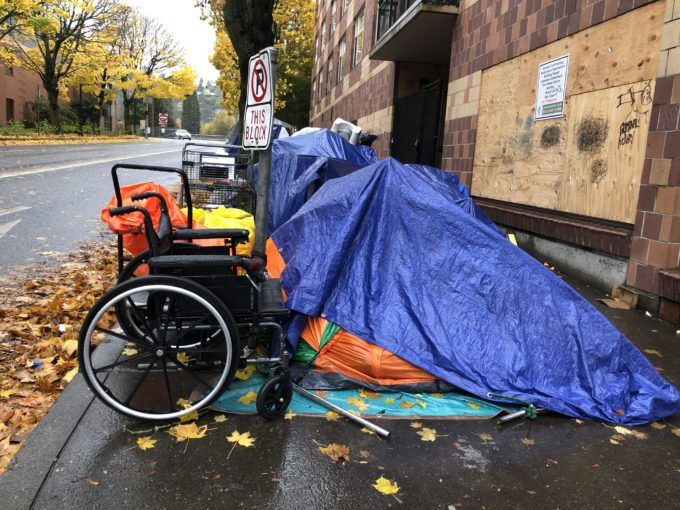
Photograph by Nathaniel St. Clair
During my time in prison, I lived in hell.
I witnessed horrific abuse, suffered from a critical lack of mental health care, and was treated as less than human. Guards even taunted inmates that we couldn’t change the system because our right to vote would be stripped away when we got out.
Well, they were wrong about that last part.
I learned when I got out that I’d been lied to — I still have my power to vote. Now I’m organizing with and for people like me who get caught up in the cycle of poverty, mental illness, and incarceration that run so closely together in this country. Where I once felt powerless, I feel differently now.
I grew up in what could have been any other normal, single parent, working class household. But as I became a young adult, I began to develop what I would later learn is called schizoaffective disorder, bi-polar type.
When I was 20, I was misdiagnosed and received inappropriate treatment, leading to sleepless manic episodes, frightening hallucinations, and other problems. Angry, stressed out, and in worsening mental health, I struggled to keep a job.
Desperate for money, I began stealing and committing other crimes. I ended up serving nine years in prison.
My story isn’t uncommon. The National Alliance on Mental Illness reports that in 2020, nearly 53 million adults — 21 percent of the U.S. adult population — reported mental health issues. For incarcerated people, the numbers are even higher.
A whopping 64 percent of all people in U.S. jails, 54 percent of those in state prisons, and 45 percent of people in federal prisons have reported mental health illnesses, the American Psychological Association details. And according to the Centers for Disease Control, people living in poverty are far more likely to experience stressors to their mental health than those living above the poverty line.
All of this — the national mental health crisis, poverty, and a prison system that’s a dumping ground for poor people with untreated mental health disorders — can be alleviated by common sense public policy. And that policy can be won by organizing the 140 million poor and low-income Americans.
My own experience offers a glimpse of what a better approach could look like.
During my last time in prison, I was held without bail for nearly 15 months until a judge ruled me not guilty by reason of insanity and connected me to state resources.
For the first time in my life, my mental health was taken seriously. They diagnosed me and gave me effective medication. I was able to get onto SSI (Supplemental Security Income) and live a life relatively free from the past ravages of my disease.
But it shouldn’t take spending nearly a decade in prison for someone to get the help they need. We need to expand programs like these, including making sure comprehensive health care is a basic human right, and make them accessible to everyone.
And to do that, we need to exercise our vote. Nationally, there are 85 million poor and low-income eligible voters, according to the Poor People’s Campaign. That’s enough to sway the election in every state.
My home state of Pennsylvania, for example, has 3.3 million poor and low-income eligible voters who make up nearly 30 percent of the electorate. If we were organized to take action together, we could determine what happens in any election.
Many eligible low-income voters are disillusioned because candidates don’t speak to us. But if we organize, they’ll have to. That’s why my wife and I work tirelessly to organize people like us every day — even as we continue to struggle with a lack of financial security and the lack of a proper home.
We have the power of the vote. And you can bet your ballot that we and millions of our fellow poor and low-income voters nationwide will use it in November. I hope you will too.
This post was originally published on this site be sure to check out more of their content.








